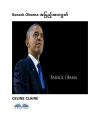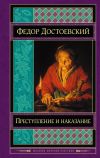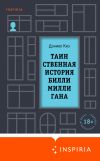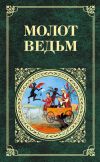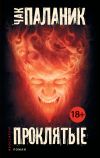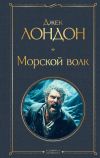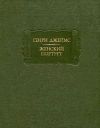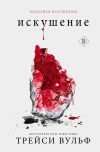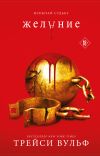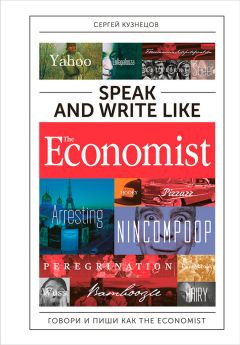
Автор книги: Сергей Кузнецов
Жанр: Иностранные языки, Наука и Образование
Возрастные ограничения: +12
сообщить о неприемлемом содержимом
Текущая страница: 10 (всего у книги 35 страниц) [доступный отрывок для чтения: 12 страниц]
During the second world war computers had been built to crack codes (Colossus, in Britain) and calculate artillery firing tables (ENIAC, in America). As the cold war began, along came the perfect opportunity: the hydrogen bomb, whose construction would require detailed mathematical modelling. Von Neumann did a deal with his American military paymasters. They got their bomb, and the scientists got their computer, a key ancestor of all modern machines. The subsequent explosion of computing changed the world.
Scientific papers do not drive messages home as convincingly as the destruction of a city.
An unmanned sampling mission to the moon is pencilled in for 2017, with the objective of gathering lunar soil and returning it to Earth. By 2025 the goal is to send a manned mission there. Imagine the symbolism, wrote Bruce Sterling, a science-fiction author, if in the coming decades a spacecraft containing several young Chinese (or Indian) astronauts were to land on the moon, where the group would carefully fold away the American flag planted by Neil Armstrong and Buzz Aldrin, and plant their own flag in its stead.
Victor Hugo: «No power on Earth can stop an idea whose time has come.»
Named after the Roman goddess of love, Venus could have been a sister planet to Earth. The two orbs are almost identical in shape, volume and mass. Both have solid surfaces, an atmosphere and a weather system. Even their distances from the sun are not so different: Venus is about 108m kilometres (67m miles) from the centre of the solar system while the Earth is about 150m kilometres out. Yet Venus is far from lovely. Probes sent to the planet by America and the Soviet Union from the 1960s to the 1980s revealed that Venus would be deadly to humans. The atmosphere is mostly noxious carbon dioxide, the pressure at the planet's surface is equivalent to being almost a kilometre under water and the temperature is a roasting 465C.
Representatives of Diageo, which owns Guinness, one of the most widely sold brands of stout, approached Dr Lee in 2009. They wondered if he might be able to construct a mathematical model of the formation and growth of bubbles in stout. Dr Lee was happy to oblige. And once he had produced the model, he started thinking more about the problem.
If the ultra-Orthodox were in heaven he would rather not go there.
Genes are acquired at conception and carried to the grave. But the same gene can be expressed differently in different people – or at different times during an individual's life. The differences are the result of what are known as epigenetic marks, chemicals such as methyl groups that are sometimes attached to a gene to tell it to turn out more of a vital protein, or to stop making that protein altogether.
George Orwell: «Who controls the past controls the future. Who controls the present controls the past.»
Electrons jump between orbits or escape nucleus altogether in attoseconds – on eattosecond is to one second what one second is to the age of universe.
Two private firms are offering moon jaunts to the rich and dedicated. And even if the engineering can be perfected, it remains to be seen how many daredevil billionaires will be willing to spend months cooped up in a metal tube eating freeze-dried food.
He had never had enough imagination to be sacred.
Bugatti Veyron, a 1,000-horsepower monster.
Content is not just king, it is the emperor of all things electronic.
His team recently managed to cage a nitrogen atom inside a buckyball (a sphere formed from 60 carbon atoms) and use its electrons as a single qubit.
In the southern hemisphere the moon is in the northern sky and its left and right sides reverse. The Economist can take solace that the original picture showing the waxing phase on the left side of the moon in Rio was indeed correct.
Before you were trying to find a needle in a haystack at least you could see the needle gleaming. Now you have to find a needle in a million haystacks."
We tend to overestimate the effect of a technology in the short run and underestimate the effect in the long run," observed Roy Amara, an American futurologist.
It is, allegedly, now the exclusive right of scientists to answer the three fundamental why-questions with which the authors purport to deal in their book. Why is there something rather than nothing? Why do we exist? And why this particular set of laws and not some other?
“ War, violence, terrorism, spying, diplomacy, crime, hunting
Why does mankind have wars?
Mr le Carre once described Britain as a country where «failed socialism is being replaced by failed capitalism».
Unlike Vietnam war, which is perennially relived and relitigated, the Korean war of 1950[52 is largerly forgotten in America. Yet it brought about the utter devastation of the Korean peninsula, along with the deaths of 2.5m civilians and 1.2m soldiers, among them 34,000 Americans. After a massive Chinese intervention, it ended with Korea as divided as it had been before.
As George Bush junior once memorably put it, he was not prepared to «fire a $2m missile at a $10 empty tent and hit a camel in the butt».
The Crimean war was certainly the most significant conflict of the second half of the 19th century. If deaths from disease are included, it cost at least 750,000 lives, two-thirds of them Russian, and it triggered big social and cultural changes in all the countries affected.
Once you have heard how Phereclus died by a spear through his right buttock into his bladder, you won't forget it.
Never cheer for the coup until the countercoup has failed.
When a kid points a Kalashnikov at you, do you shoot him?
America is still unequalled in hard power. At $600bn a year, its defence spending is more than the next seven biggest spenders combined.
Had Shakespeare not memorialised the name of a small siege explosive in the phrase to be «hoist with his own petard», meaning a small bomb but also linked to the French word for «fart», that would probably be gone, too.
China's government regards spy-catching as a game for everyone. In April the municipal government of Beijing started offering rewards of up to 500,000 yuan ($70,000) for finding one.
What does Islamist mean?
Antarctica is the only continent where threre has never been war.
What insight does an old soldier offer?
The job of National Security Advisor requires a cool head, a big brain, excellent managerial skills and an even temper: few have excelled at it.
The Iroquois even separately declared war on Germany in 1941.
Serious criminals are nearly all male, which is why less than 10 % of the world's prisoners are women.
Schumpeter has put together a battle drill on how to cope with activists. It has four elements: know the enemy; prepare for them to attack; smother them with sincerity; and make concessions if you have to.
About 17 years ago, Mrs P received a caution for stealing a sandwich. She also stole a 99p book, for which she was prosecuted. Homeless and suffering from schizophrenia, she failed to appear in court, and so received two convictions.
How to stop people who are determined to kill?
Hannah Beech in the New Yorker likens North Korea's prickliness to a hedgehog's evolutionary strategy of showing its spines to protect its pink underbelly.
Criminals do not think ten years into the future. If they did, they would take up some other line of work. One study found that each extra year in prison raises the risk of reoffending by six percentage points.
Japan is almost crime-free not thanks to the police, says Yoshihiro Yasuda, a campaigning lawyer, but because people police themselves.
«When a rising power is threatening to displace a ruling power,» Mr Allison writes, «standard crises that would otherwise be contained, like the assassination of an archduke in 1914, can initiate a cascade of reactions that, in turn, produce outcomes none of the parties would otherwise have chosen.» This is the Thucydides Trap, named after the Athenian historian who first pointed to it. The Harvard study concluded that in 12 out of the 16 historical cases in the past 500 years that it examined, the outcome was war.
So cheap and plentiful are hand-grenades that Yemenis throw them to celebrate weddings.
Roman soldiers, it is said, were sometimes paid in salt.
Who does not prefer the rifle to the blunderbuss, the scalpel to the axe?
What happens to institutions and legal processes when the distinctions between war and peace become blurred and the space between becomes the norm?
With 5,000 years of sacred history touted ad nauseam by its Communist Party leaders, who is to deny China anything it wants?
The intelligence world is full of bluffs and double-bluffs – and errors. Agents misbehave. Aims change over time.
The other key principles of the Obama checklist are: sustainability (avoid commitments that cost too much to stick with); restraint (ask not what America can do but what it should do); precision (wield a scalpel rather than a hammer); patience (give policies the time and effort to work); fallibility (be realistic about the chances of failure and modest about what you can achieve); scepticism (interrogate the issues and beware those peddling easy answers to difficult questions); exceptionalism (the recognition that because of its enormous power and attachment to universal values America has a unique responsibility to provide leadership in the world that cannot be ducked).
Napoleon was impressed with Istanbul. If all the world were a single state, he said, this city should be its capital.
As Hitler rolled through Europe, some Americans wondered if Britain could hold out. One military observer questioned whether the British army could handle the «high centralisation and co-ordination demanded by the machine age.» Britain urgently sought American aid, which often fell short. Even before Lend-Lease, America sent Britain rifles leftover from 1919, still packed in grease, with bullets of the wrong calibre, which made them useless.
In Indonesia and the Philippines, more than 90 % of female prisoners have been charged with drug offences. In Ireland, 80 % are jailed for non-payment of fines. Most Kenyans prosecuted for brewing illicit alcohol are women, perhaps because it is a crime that can be committed without leaving the children home alone. In Afghanistan, half the women in prison are there for «moral» crimes such as eloping.
America will need to act as enforcer-in-chief.
An Indonesian official announced he had found a way to save money on prisons: replace guards with crocodiles. Crocodiles, he noted, were sufficiently ferocious and more resistant to bribery.
California's treasurer, Bill Lockyer, is fond of saying that California will not default unless there is thermonuclear war.
Intelligence officers seeking to recruit a target work on four frailties, summarised in a CIA dictum as money, ideology, compromise and ego (MICE for short).
Having taken back control of their territory in Iraq and Syria, the Kurds have proved incapable of sharing it. The alphabet barely has enough letters to cover the acronyms of all their quarrelsome factions. A Syrian analyst counts 45 in Rojava alone. In Iraq there are almost as many. « We're upholding Sykes-Picot borders,» says one of its commanders wryly.
A retired general says that nuclear command and control during the cold war felt like «holding an angry tiger by the tail».
The incident is yet another illustration of the perils of matching first-world firepower with third-world decision-making.
As one general puts it, the American military is becoming «a Super Walmart with everything under one roof». Because its culture is proudly can-do, it gets on with the demands made on it without much complaint.
If a goat can get through, so can a man; if a man can get through, so can a battalion.
The major lesson of the Vietnam war is: do not rely on the United States as an ally.
The grass is always greener on the other side of the fence.
Assured peace comes only at the splintered end of a long stick.
Scratch a South Korean and he will be unsure of America's commitment, ready to believe that Japan might turn aggressive again, resentful that China ignores his country's concerns and alarmed by a dangerous North Korea.
One community chopped off the sexual organs of another community.
As Helmuth von Moltke, a 19th-century German field-marshal, put it: «No plan survives contact with the enemy.» Or Mike Tyson, still more pithily: «Everyone has a plan 'til they get punched in the mouth».
Grover Cleveland even managed to dodge the draft during the civil war by paying $150 to a Polish immigrant to act as his substitute.
The U. S. military programme needs to overcome at least five critical vulnerabilities. The first is that carriers and other surface vessels can now be tracked and hit by missiles at ranges from the enemy's shore which could prevent the use of their cruise missiles or their tactical aircraft without in-flight refuelling by lumbering tankers that can be picked off by hostile fighters. The second is that defending close-in regional air bases from a surprise attack in the opening stages of a conflict is increasingly hard. Third, aircraft operating at the limits of their combat range would struggle to identify and target mobile missile launchers. Fourth, modern air defences can shoot down non-stealthy aircraft at long distances. Finally, the satellites America requires for surveillance and intelligence are no longer safe from attack.
If a guy has been hit by 700,000 bullets it's hard to work out which one of them killed him.
Wars sound horrible in plain English, so they have always generated a smokescreen of euphemism. «Kinetic action» means «killing people». «Collateral damage» means «killing people accidentally». Politicians typically use the word «kill» only to describe what our enemies do to us; not what we do to them. In a speech in May explaining his drone warfare policy, for example, Barack Obama spoke of «lethal, targeted action against al-Qaeda and its associated forces». As Orwell said, when «certain topics are raised, the concrete melts into the abstract.»
We all know about Iwo Jima, but who in the West has heard of the defence of Taierzhuang, when Chinese soldiers defeated superior Japanese troops in hand-to-hand combat?
In «Year Zero» Ian Buruma tells these stories well, and highlights others too. He finds concentration-camp inmates who attacked their German nurses after liberation; a Jewish extremist who tried to poison 6m Germans; the 137 SS officers who «had their testicles permanently destroyed» by American interrogators.
Unencrypted e-mails are as open as postcards and using a mobile is the worst thing you can do. There is the data centre that the NSA is building near Salt Lake City, Utah. It is likely to cost at least $1.2 billion, and some expect its computers to provide five trillion gigabytes of storage. The agency did not build it to stand empty.
History suggests that, unless civil wars end in victory after 12 months or so, they tend to drag on for years.
A typical air-force stint is three to four years; some drone pilots have been serving for over six. Morale is low and burnout, high. Many pilots worry that their job is the object of scorn. When the idea of medals for drone pilots was aired last year, a retired Green Beret huffed to the Washington Times: «I suppose now they will award Purple Hearts for carpal tunnel syndrome.»
More than 52,000 police officers were assaulted in America in 2012. That's 142 assaults on the police each day. And people wonder why they come across as jaded and gruff.
Mr. Obama is taking a risk. Step back too far from big sticks, and when America speaks, it may not be heard.
Cryptography is an arms race between Alice and Bob, and Eve. These are the names cryptographers give to two people who are trying to communicate privily, and to a third who is trying to intercept and decrypt their conversation. Currently, Alice and Bob are ahead – just. But Eve is catching up. The most developed form of quantum cryptography, known as quantum key distribution (QKD), relies on stopping interception, rather than preventing decryption. Once again, the key is a huge number – one with hundreds of digits, if expressed in the decimal system. Alice sends this to Bob as a series of photons (the particles of light) before she sends the encrypted message. For Eve to read this transmission, and thus obtain the key, she must destroy some photons. Since Bob will certainly notice the missing photons, Eve will need to create and send identical ones to Bob to avoid detection. But Alice and Bob (or, rather, the engineers who make their equipment) can stop that by using two different quantum properties, such as the polarities of the photons, to encode the ones and zeros of which the key is composed. According to Werner Heisenberg's Uncertainty Principle, only one of these two properties can be measured, so Eve cannot reconstruct each photon without making errors. If Bob detects such errors he can tell Alice not to send the actual message until the line has been secured.
More than 2,000 years ago Greece was torn apart by Sparta's failure to manage the rise of Athens. A hundred years ago Europe was torn apart by its failure to manage the rise of Germany. If the 21st century is to be more peaceful than the 20th, America and China must learn to co-operate better.
History is littered with powerful people undone by hubris. Julius Caesar should have ignored the cheers of the Roman crowd and paid heed to the soothsayer.
The American revolution itself was an episode in the long conflict between Britain and France.
Spooks do need secrecy, but not on everything and everywhere.
There are around 250 gangs in the capital alone, selling drugs, carrying out muggings and sometimes stabbing each other. Gangsterism in Britain has become mundane.
The first rule of modern conspiracies is that you do not talk about them in e-mails.
The Meiji slogan fukoku kyohei: «enrich the country, strengthen the army».
Imagine that Apple could sell iPhones in Brazil only if it ploughed 20 % of its projected revenues there into local technology firms. That may sound absurd, but this is what happens when governments buy arms from foreign contractors. In procurement it is standard to supplement the main deal with a side contract, usually undisclosed, that outlines additional investments that the winning bidder must make in local projects or else pay a penalty. Welcome to the murky world of «offsets». Take the shrimp farm set up in Saudi Arabia in 2006 with backing from Raytheon, a maker of radar systems and missiles. Praised at first as a model offset, it reportedly struggled to keep its pools properly maintained in searing temperatures and eventually went bust. Turkey, for instance, now meets half its own defence needs thanks to such arrangements. Indirect (non-defence) offsets include everything from backing new technologies or business parks to building hotels, donating to universities and even supporting condom-makers.
To a man with a hammer, Mark Twain once said, everything looks like a nail.
He never protected himself, not with a gun, not even with a toothpick.
Was not Alfred Nobel an arms maker before he became a prize-endower?
St Augustine reported a convicted pirate's testy exchange with Alexander the Great: «Because I have only one rickety ship, I'm called a bandit, and because you have a large fleet, you are called an emperor,» says the plucky seafarer.
The British war in Afghanistan in 1842 cost £ 15m – about £ 50 billion ($80 billion) in today's money – and the lives of 40,000 people, 50,000 camels and at least one cat. That is still a bargain compared with the current conflict, which costs America more than $100 billion every year.
Calling for growth is like advocating world peace: everybody agrees that it is a good thing, but nobody agrees how to do it.
Undercover agents are often most useful not when they are spying on a country's enemies, but when they are talking to them. Spies rarely provide solid answers, he says, but offer confusing bits of a jigsaw puzzle of unknown size and shape. At best, secret intelligence removes an element of surprise from foreign affairs, but it rarely makes it clear what to do.
Chippewa morning of 9/11 Mr Bush was reading «My Pet Goat» to a class of second-graders.
American commanders are fond of the saying that amateurs discuss tactics, while professionals discuss logistics.
Americans like firearms. According to a report from the Congressional Research Service there were 294m guns in the country in 2007, up from 192m in 1994.
Do not underestimate the power of a piece of paper.
The Chinese military just don't understand how to do «warm and fuzzy» when they engage with the outside world.
Mr Kjos has the ambition and appetite for risk of a Viking hopping on a longboat and paddling off to pillage Northumberland.
The statistics of the war are almost mind-numbing. Estimates differ, but up to 70m people died as a direct consequence of the fighting between 1939 and 1945, about two-thirds of them non-combatants, making it in absolute terms the deadliest conflict ever. Nearly one in ten Germans died and 30 % of their army. About 15m Chinese perished and 27m Soviets. Squeezed between two totalitarian neighbours, Poland lost 16 % of its population, about half of them Jews who were part of Hitler's final solution. On average, nearly 30,000 people were being killed every day. American and British generals had to eschew the dashing aggression of their Russian and German counterparts, who could squander lives with impunity. Thanks to the bloodbath in Russia, where the Wermacht was broken and nine out of ten German soldiers who died in the war met their end, they could permit themselves to be more cautious.
Some years ago, Mr Hague says, it was predicted that the world would evolve into a series of fixed blocks. The only telephone numbers needed for diplomacy would be in Washington, Brussels and Beijing. That has been proved wrong: the world has never looked more multipolar and networked.
In war, it is said, there are no unwounded soldiers. Bombs that shatter bones also batter brains.
Military technology, unsurprisingly, is at the forefront of the march towards self-determining machines Its evolution is producing an extraordinary variety of species. The Sand Flea can leap through a window or onto a roof, filming all the while. It then rolls along on wheels until it needs to jump again. RiSE, a six-legged robo-cockroach, can climb walls. LS 3, a dog-like robot, trots behind a human over rough terrain, carrying up to 180kg of supplies. SUGV, a briefcase-sized robot, can identify a man in a crowd and follow him. There is a flying surveillance drone the weight of a wedding ring, and one that carries 2.7 tonnes of bombs.
The Iranian hostage-takers were astounded to find that, of the four CIA officers in the American embassy in Tehran, none could speak Persian.
There is no point in beating a dead snake.
International Herald Tribune, Jan. 2, 1985: Excerpt from Hitler's speech at the 1935 New Year's reception in Berlin for the diplomatic corps: «The German people and its government are determined to contribute their best to the shaping of international relations which will guarantee honest cooperation on the basis of equality for all and which alone will ensure the progress and welfare of the community».
Guerrilla warfare, however, is harder to model than open battle of this sort, and the civil insurrection that often precedes it is harder still. Which, from the generals' point of view, is a pity, because such conflict is the dominant form of strife these days. The reason for the difficulty is that the fuel of popular uprisings is not hardware, but social factors of a type that computer programmers find it difficult to capture in their algorithms. Analysing the emotional temperature of postings on Facebook and Twitter, or the telephone traffic between groups of villages, is always going to be a harder task than analysing physics-based data like a tank's firing range or an army's stocks of ammunition and fuel.
A mass rally in Pyongyang this week to swear allegiance to Mr Kim junior on behalf of the 1.2m members of the army, made the pledge to «wipe out the enemies to the last one if they intrude into the inviolable sky, land and seas of the country even 0.001mm.»
When the tribes of ancient Israel defeated the Midianites, the victors got the losers' 675,000 sheep, 72,000 oxen, 61,000 asses and 32,000 female virgins (males and non-virgin women were slaughtered), as well as the gold and jewels. The biblical account suggests that, in that era at least, this was a standard post-conflict resolution of property questions.
Diplomacy without arms is like music without instruments (Frederick the Great).
What matters is the ability to knit everything together on the battlefield through what the Chinese called «informatisation» and what is known in the West as «unified C 4ISR». (The four Cs are command, control, communications, and computers; ISR stands for intelligence, surveillance and reconnaissance; the Pentagon loves its abbreviations.)
I refer you to some apt lines uttered by Orson Welles in «The Third Man»: «In Italy for 30 years under the Borgias they had warfare, terror, murder, and bloodshed, but they produced Michelangelo, Leonardo da Vinci and the Renaissance. In Switzerland they had brotherly love, they had 500 years of democracy and peace, and what did that produce? The cuckoo clock.»
The memos gave the CIA licence to use «enhanced» techniques derived from American training advice to pilots and other personnel on how to withstand torture if they should fall into enemy hands. They are shocking for their bureaucratic punctiliousness. They parse the degrees of pain that would constitute forbidden torture («an intensity akin to the pain accompanying serious physical injury»). They set out in incongruous detail the limits of abuse. A prisoner could be deprived of sleep, but for no more than 180 hours before being allowed to rest for eight. He could be stripped naked but only if the room was warmer than 68°F (20 °C). He could be doused in water but it had to be potable. He could be waterboarded with cold (saline) water poured onto his face but each application should not last more than 40 seconds, there should be no more than six applications per session, no session could last more than two hours and there could be only two sessions in 24 hours. One prisoner, Khaled Sheikh Mohammed, the operational head of the September 11th 2001 attacks on America, was waterboarded 183 times.
The world is more stable when one nation dominates, especially when it is a nation like America. If American leadership does collapse, what then.
You cannot make war on war and on your neighbor at the same time.
Tsutomu Yamaguchi had to pack his bags to leave Hiroshima after a three-month assignment as an engineer in the Mitsubishi shipyard; there were goodbyes to say at the office, then a 200-mile train journey back to Nagasaki to his wife Hisako and Katsutoshi, his baby son. It was a beautiful August day and he noticed an aircraft circling, and two parachutes dropping down… His status was recognised by the Japanese government: he became officially (though there had been more than 100 others) the only nijyuu hibakusha, or twice-victim of the atom bomb.
America is estimated to have over 33,000 gangs, with approximately 1.4m members; the great bulk of these are in cities.
Teddy Roosevelt's advice to speak softly and carry a big stick.
American Congressman says he is a friend on Monday and sends money to extremists on Tuesday.
He made wild bets, too, on anything, as long as he was likely to win. He bet on which of five sugar cubes a fly would land on; whether a stray cat could carry a Coke bottle across a room; whether he could beat Bobby Riggs at table tennis played with iron skillets, and Minnesota Fats at pool with a broom; whether he dared ride a camel through the fanciest casino in Marakesh, and whether he could hang on to a horse's tail for a quarter of a mile. He won them all until, as the song said, even the Devil wouldn't bet with him.
That Chongqing's dirty linen was aired in front of American diplomats on his watch may matter more than the dirt itself.
The telegraph operator – incoming telegrams to large Berlin banks – orders of securities to be purchased – speculator informed first.
Even given more money, soldiers and equipment, the formula for success in foreign wars remains mysterious. Iraq, Afghanistan and even Libya have hardly been unqualified successes for Western intervention.
The United States then made some 30 military interventions in and around the Caribbean in the next 30 years, many of them under Smedley Butler, a marine corps general, who summed up his career thus: «I helped make Honduras „right“ for American fruit companies in 1903. I helped make Mexico…safe for American oil interests in 1914. I helped make Haiti and Cuba a decent place for the National City Bank boys to collect revenues in. I helped in the raping of half a dozen Central American republics for the benefit of Wall Street… I helped purify Nicaragua for the international banking house of Brown Brothers in 1909–12. I brought light to the Dominican Republic for American sugar interests in 1916. In China, I helped to see to it that Standard Oil went its way unmolested.»
As Carl von Clausewitz, a great Prussian strategist, put it: «War is not merely an act of policy but a true political instrument, a continuation of political intercourse carried on with other means.»
He had been born during the war, grown up during the misery of the inflation and the restlessness of the postwar years, and had awakened during a new war.
At weekends, a handy man with a spanner, he would get under the hood of neighbours' cars and mend children's bikes. His ranch-style house in Seven Hills sat on half an acre, where he proudly grew tomatoes and zucchini. From 1977 to 1993, however, he became Ivan the Terrible, who had roamed the concentration camp at Treblinka in Poland with a whip, or a sword, in his big mechanic's hands. As the naked Jews ran shivering from the trains to the gas chambers he would slash off an ear, rip open a belly, or flog them til they fell. He drilled the anus of one man with an auger, and shoved the face of another hard into barbed wire. An expert on engines, he had operated the diesels that pumped out carbon monoxide to kill 870,000 people.
The country was the original home of the young man with explosive underpants who tried to blow up an American airliner over Detroit at Christmas.
Правообладателям!
Данное произведение размещено по согласованию с ООО "ЛитРес" (20% исходного текста). Если размещение книги нарушает чьи-либо права, то сообщите об этом.Читателям!
Оплатили, но не знаете что делать дальше?